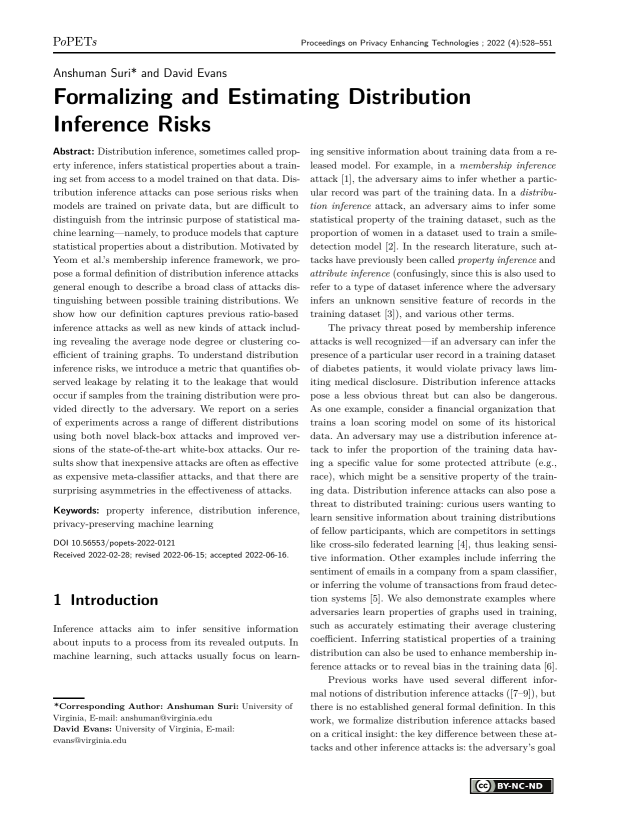Formalizing and Estimating Distribution Inference Risks
Authors: Anshuman Suri (University of Virginia), David Evans (University of Virginia)
Volume: 2022
Issue: 4
Pages: 528–551
DOI: https://doi.org/10.56553/popets-2022-0121
Abstract: Distribution inference, sometimes called property inference, infers statistical properties about a training set from access to a model trained on that data. Distribution inference attacks can pose serious risks when models are trained on private data, but are difficult to distinguish from the intrinsic purpose of statistical machine learning—namely, to produce models that capture statistical properties about a distribution. Motivated by Yeom et al.’s membership inference framework, we propose a formal definition of distribution inference attacks general enough to describe a broad class of attacks distinguishing between possible training distributions. We show how our definition captures previous ratio-based inference attacks as well as new kinds of attack including revealing the average node degree or clustering coefficient of training graphs. To understand distribution inference risks, we introduce a metric that quantifies observed leakage by relating it to the leakage that would occur if samples from the training distribution were provided directly to the adversary. We report on a series of experiments across a range of different distributions using both novel black-box attacks and improved versions of the state-of-the-art white-box attacks. Our results show that inexpensive attacks are often as effective as expensive meta-classifier attacks, and that there are surprising asymmetries in the effectiveness of attacks.
Keywords: property inference, distribution inference, privacy-preserving machine learning
Copyright in PoPETs articles are held by their authors. This article is published under a Creative Commons Attribution-NonCommercial-NoDerivs 3.0 license.


